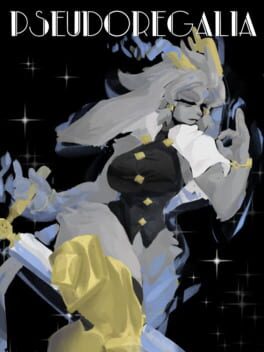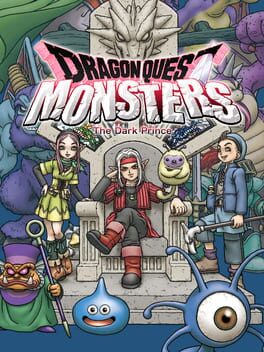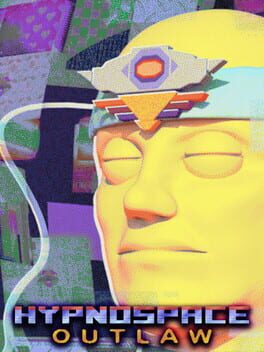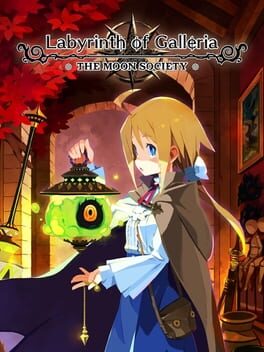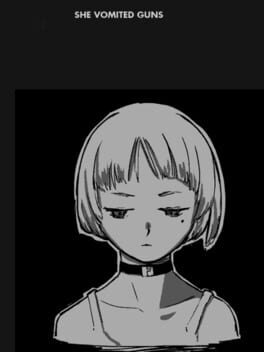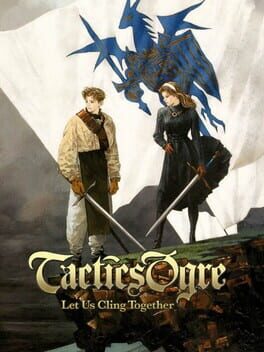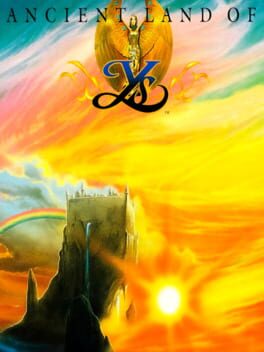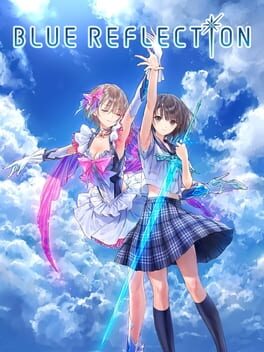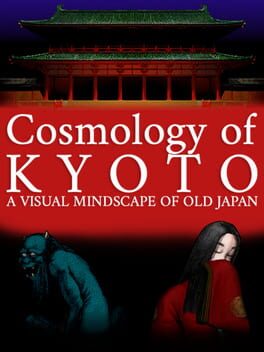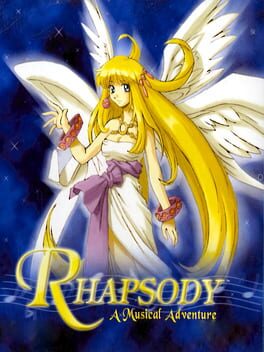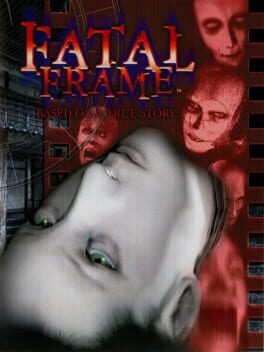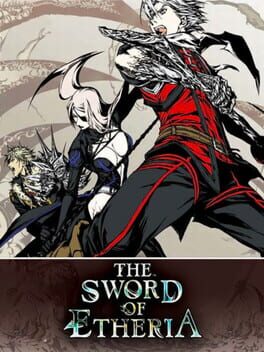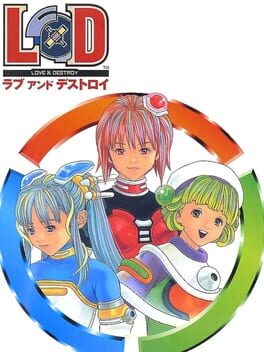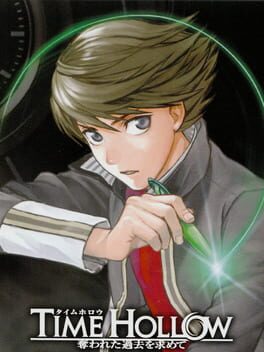DolorousWthVines
BACKER
2023
I would like to reccomend this because of its insanely cool platforming, which perfectly plays off those "unwieldy" vibes from early 3d platformers and supercharges them with Celeste-level wall-jump craziness; But the main character is a mostly naked anthropomorphic bunny with the thiccest thighs the artist could conceivingly model within the costraits of the haunting low-poly psx nostalgia visual style of the game, so now it's a bit embarrassing to go "hey check out this!".
It feels like everyone making games has suddenly become 200% more horny, while I wasn't looking. It was a bad enough experience when that happened to all of my peers during adolescence, and I don't like it happening again.
The only accessibility option being "Give Sybil pants" made me chukle tho. I have a friend named Sybil, and I am not sure if she would enjoy being given pants.
Anyhow the game is really good. Even tho there's one piece of the soundtrack that reminds me of Dark Souls 2.
EDIT: my one nitpick is that combat feels like an entirely vestigial accessory in the game, and YET the final boss is a straightforward combat challenge. Just feels weird to cap off the game with completely unrelated to what the player has mostly engaged with so far (jumping) for no thematic payoff.
It feels like everyone making games has suddenly become 200% more horny, while I wasn't looking. It was a bad enough experience when that happened to all of my peers during adolescence, and I don't like it happening again.
The only accessibility option being "Give Sybil pants" made me chukle tho. I have a friend named Sybil, and I am not sure if she would enjoy being given pants.
Anyhow the game is really good. Even tho there's one piece of the soundtrack that reminds me of Dark Souls 2.
EDIT: my one nitpick is that combat feels like an entirely vestigial accessory in the game, and YET the final boss is a straightforward combat challenge. Just feels weird to cap off the game with completely unrelated to what the player has mostly engaged with so far (jumping) for no thematic payoff.
I'm very much a Breath of The Wild centrist, in that while I really enjoyed it, I thought it still had a couple of glaring game-isms that stopped it from being the transcendental adventure full of discovery and wonders it promised.
Tears of The Kingdom interestingly, while being basically built on botw's foundations, seems to approach the player with a completely different promise. Much less wonder, much less adventure, and much more puzzles. Way more of a video game-ass game. And while it fulfils that promise almost perfectly, I can't help to think that it's a much less interesting promise that what botw set out for.
I'm sort of darting around the map completing very compelling puzzles, and while that's fun, I can't help but miss botw and its sessions filled with "I want to climb that thing cause maybe there's something organically neat there". Like, there would rarely be something neat there, cause that was sort of the game, but still, it was a very unique experience.
Totk on the other hand is Way more structured. Everything is a quest. Everything is discrete and directed. Everything is a puzzle. Which again, is fine, they were definitely going for a more traditional hub-world structure and stuff, cause it's a game about discrete puzzles. But like, yeah, that kind of structure is way much less my thing. Ngl 50% of the times I'm running around in this game I feel like Nintendo tricked me into playing an Assassin's Creed.
I dunno. This is still a good game. The moment-to-moment gameplay is excellent and really technically impressive, and it's definitely one of those very design-y games, where you can clearly see how all the systems fit with each other and marvel at the work that went into fitting it all together. So yeah, it's alright.
Additional thought: I don't like the Depths. Not for any design-y or real reason, just every time i go into the depths my brain goes "I don't like being here". They're also sort of boring and featureless so far tbf. Wish there were less of them.
Update: I have now finished the game and have two additional thoughts:
1. Gotta respect this game for going "We have 4 dungeons. 3 of them are elegant and sleek and small and really fun. The 4th one is the most confusing mess of rooms and tracks you've ever seen and is also on fire fuck you"
2. lol @ that Lord Gwyn-ass bossfight
good game
Tears of The Kingdom interestingly, while being basically built on botw's foundations, seems to approach the player with a completely different promise. Much less wonder, much less adventure, and much more puzzles. Way more of a video game-ass game. And while it fulfils that promise almost perfectly, I can't help to think that it's a much less interesting promise that what botw set out for.
I'm sort of darting around the map completing very compelling puzzles, and while that's fun, I can't help but miss botw and its sessions filled with "I want to climb that thing cause maybe there's something organically neat there". Like, there would rarely be something neat there, cause that was sort of the game, but still, it was a very unique experience.
Totk on the other hand is Way more structured. Everything is a quest. Everything is discrete and directed. Everything is a puzzle. Which again, is fine, they were definitely going for a more traditional hub-world structure and stuff, cause it's a game about discrete puzzles. But like, yeah, that kind of structure is way much less my thing. Ngl 50% of the times I'm running around in this game I feel like Nintendo tricked me into playing an Assassin's Creed.
I dunno. This is still a good game. The moment-to-moment gameplay is excellent and really technically impressive, and it's definitely one of those very design-y games, where you can clearly see how all the systems fit with each other and marvel at the work that went into fitting it all together. So yeah, it's alright.
Additional thought: I don't like the Depths. Not for any design-y or real reason, just every time i go into the depths my brain goes "I don't like being here". They're also sort of boring and featureless so far tbf. Wish there were less of them.
Update: I have now finished the game and have two additional thoughts:
1. Gotta respect this game for going "We have 4 dungeons. 3 of them are elegant and sleek and small and really fun. The 4th one is the most confusing mess of rooms and tracks you've ever seen and is also on fire fuck you"
2. lol @ that Lord Gwyn-ass bossfight
good game
I've never seen a modern 3D rpg replicate so perfectly the vibes of, like, random mid-tier Game Boy rpgs like Robopon or Legend of The River King. From the extremely abstracted, yet somehow small and isolated, environments, to the wordy yet breezy and somewhat hollow structure of the game itself, which mainly exists just to prop up the excellent monster battler mechanics. All those are vibes that I thought were lost to time, and seeing them resurface here put a nostalgic smile on my face.
To be fair, this stuff can either be good or bad depending on your tastes. It can maybe come off as cheap in what's supposed to be a "modern 3d game for grown ups". But, like, it is definitely a very Distinct vibe, and you gotta at least respect it for that.
I didn't really want to stick with it for 40 hours. Which is also true of a lot of those mid-tier game boy rpgs it reminds me of. But what I've played I enjoyed thoroughly. Which is also true of a lot of those mid-tier game boy rpgs it reminds me of.
To be fair, this stuff can either be good or bad depending on your tastes. It can maybe come off as cheap in what's supposed to be a "modern 3d game for grown ups". But, like, it is definitely a very Distinct vibe, and you gotta at least respect it for that.
I didn't really want to stick with it for 40 hours. Which is also true of a lot of those mid-tier game boy rpgs it reminds me of. But what I've played I enjoyed thoroughly. Which is also true of a lot of those mid-tier game boy rpgs it reminds me of.
2019
1. This era of the internet missed me by about 5-8 years, yet it still evokes an uncanny sense of... not nostalgia... just... memory? My era of the internet, was, to an extent still haunted by the echoes of 90s internet. Anything that in the 00s delved into the recent past, would inevitably bring up the aesthetics and mechanics of that early popularization of the medium. So I guess it was a memory then, and now it's a memory of a memory.
I dunno, I coincidentally played this at the same time as I started listening to That One Homestuck podcast, which is another dive into a similar yet different internet that I've ever only been tangentially and indirectly aware of, and I just have a lot of unstructured thoughts about the ghosts of past internets that hang over our current experience of the web. Mostly the feeling that, for all their faults, these past internets seemed, at least to an extent, to promote and enable community and human-ness, rather than merely exploit it, as the current late-social-media era internet does.
I miss blogs and I miss forums. They were 75% terrible, but honestly, I'll take toxic forum culture every day over the relentless and pervasive clout chasing of social media. Past internet was filled with assholes, cause people are assholes sometimes, and it sucked, but at least it was honest. There's nothing honest about any of the culture of late-era influencer-driven social media. It's an uncanny perversion of social mechanics, that just spins its wheels forever, tiring us out, and draining any meaning from the words we write. It commodifies aesthetics and rhetorics rather than exalting them. It slowly kills our sense of belonging as it tries to convince us that just one more like will make us happy.
There's this one page, that appears around December in the game, featuring this song about how "Zones" (the in-game communities) are "places for people to feel the same" and "places for people to feel different". I like that song. I wish I could still think of the internet in that way.
2. So, like, the idea of, basically a wiki-hole game is great. And like, props to everyone involved in the development cause the logistics of actually making something like this sound like a huge pain.
This is fun. For the most part, I love the mechanics. They're cleverly designed to tap into the innate pleasure of "internet research", making the player feel like they're cleverly digging through data and making mental connections, while at the same time guiding them through the content. It's so cool!
I wish this game... dwelled more on itself though. A key part of the experience of the old web, was logging in every day, looking at all your favourite websites to check if there was any new update, or if someone had replied to that one thread you liked on that discussion board. It was truly a "place", in many ways.
Hypnospace Outlaw, while it does feature some mild time-skipping mechanics, never quite manages to fully convey that, almost Animal Crossing-like, feeling of Being in a place that moves at its own, asynchronous, pace. You're always hunting for the next clue, solving the next puzzle, in an environment that's mostly static. It's very much a snapshot.
On the other hand, I understand that to make a game that actually focuses on that feeling of Place, would require a ridiculous amount of content. So like, I get why it doesn't. It's an imperfection in the retelling of those experiences, but a necessary one. In a way, it gives it its own, vaguely ahistorical, but inherently fascinating vibe.
Game's still great. I had fun with it. The first game in a long time where I actually wished it was a bit longer.
I dunno, I coincidentally played this at the same time as I started listening to That One Homestuck podcast, which is another dive into a similar yet different internet that I've ever only been tangentially and indirectly aware of, and I just have a lot of unstructured thoughts about the ghosts of past internets that hang over our current experience of the web. Mostly the feeling that, for all their faults, these past internets seemed, at least to an extent, to promote and enable community and human-ness, rather than merely exploit it, as the current late-social-media era internet does.
I miss blogs and I miss forums. They were 75% terrible, but honestly, I'll take toxic forum culture every day over the relentless and pervasive clout chasing of social media. Past internet was filled with assholes, cause people are assholes sometimes, and it sucked, but at least it was honest. There's nothing honest about any of the culture of late-era influencer-driven social media. It's an uncanny perversion of social mechanics, that just spins its wheels forever, tiring us out, and draining any meaning from the words we write. It commodifies aesthetics and rhetorics rather than exalting them. It slowly kills our sense of belonging as it tries to convince us that just one more like will make us happy.
There's this one page, that appears around December in the game, featuring this song about how "Zones" (the in-game communities) are "places for people to feel the same" and "places for people to feel different". I like that song. I wish I could still think of the internet in that way.
2. So, like, the idea of, basically a wiki-hole game is great. And like, props to everyone involved in the development cause the logistics of actually making something like this sound like a huge pain.
This is fun. For the most part, I love the mechanics. They're cleverly designed to tap into the innate pleasure of "internet research", making the player feel like they're cleverly digging through data and making mental connections, while at the same time guiding them through the content. It's so cool!
I wish this game... dwelled more on itself though. A key part of the experience of the old web, was logging in every day, looking at all your favourite websites to check if there was any new update, or if someone had replied to that one thread you liked on that discussion board. It was truly a "place", in many ways.
Hypnospace Outlaw, while it does feature some mild time-skipping mechanics, never quite manages to fully convey that, almost Animal Crossing-like, feeling of Being in a place that moves at its own, asynchronous, pace. You're always hunting for the next clue, solving the next puzzle, in an environment that's mostly static. It's very much a snapshot.
On the other hand, I understand that to make a game that actually focuses on that feeling of Place, would require a ridiculous amount of content. So like, I get why it doesn't. It's an imperfection in the retelling of those experiences, but a necessary one. In a way, it gives it its own, vaguely ahistorical, but inherently fascinating vibe.
Game's still great. I had fun with it. The first game in a long time where I actually wished it was a bit longer.
I have Thoughts on this game:
• The first of the three sections of the game (Alluna) is genuinely one of the best things I've played in a long time. A really touching story of bonding through trauma and societal oppression.
It's generally less dark than the other two sections of the game, but only because the darkness of its themes bubbles underneath the surface ominously, rather than being directly used for shock (something that can't always be said about the second section of the game). While presenting extremely likeable characters, this whole game segment is permeated by an almost constant fear and sense of dread, that is poignantly coupled with the slow reveal of the traumatic experiences its protagonists have gone through.
It'd almost be a hopeful little self-contained tale about women finding community even through their lingering trauma and a hostile world, if it wasn't for its incredibly dark ending that sets ups the rest of the game.
• Alluna is also perfectly paced. I was sceptical of the "play 30 minutes of a dungeon crawler to get 5 minutes of visual novel" structure, but, especially this section, and to a point the whole game, uses the odd dungeon crawler/visual novel dichotomy to dictate pace in really effective and poignant ways.
• The second section (Alstella) is... messier. This game touches on some extremely dark themes, including sexual assault, and while the first section does that subtly and in a way that supports the game's themes; the Alstella section does seem to fall in gratuitous territory in a couple of instances. While I still want to believe that most of the storytelling in Labyrinth of Galleria is done in good faith, a couple of moments are definitely mishandled/unnecessary.
• The grand overarching plot does eventually kinda fall into anime/visual novel tropes. Aside from the shift to high stakes Sci-Fi/Fantasy (which I don't hate but also don't find as effective as the timeless abstract fantasy tone of the Alluna section), there's just so much... minute exposition of things that don't really matter to the emotional core of the story? Storytelling with this amount of moving parts can work, but in this case it just seems to run against the main strength of the writing, which is characters. This also ends up tanking the pacing during the second third of the game, as there end up being very long stretches of game where nothing interesting/engaging happens.
• I believe an amount of odd/spurious details are there to connect this game to other games in the series and... I'm just so tired of lore? Can we just stop?
• The problem with this kind of grand plot is also that, out of necessity, it tends to always end in the same kind of story beats. The likeable and well-written characters give Galleria a strong emotional resonance throughout its whole length, but still, a lot of the Alstella and Grand Cathedral endings feel a bit... uninspired. I'm just not sure how many jrpg speeches about "a flawed but alive world is better than a perfect static one" I can still take. Especially because the rest of the game, is like, very good, and not about that stuff at all. But once you add world-creation powers in the mix you can't really go anywhere else.
• It can't be overstated that the character writing is honestly incredibly good. A lot of the trauma explored in it hits a bit too close to home tbh. But, yeah, it's really good stuff.
• One exception to this is the big villain of the game. A lot of her motivation just... didn't make a lot of sense nor had any real emotional payoff. I get what they were trying to do with her (and with one of the final reveals, which gives a justification to her often bizarrely misaligned plans), but I feel like maybe this game didn't really need a grandiose villain at all. As mentioned, all other characters are complex and compelling and very empathetically written, so I don't think that the forces causing conflict in the world necessarily needed to have a "face" for the core conflicts presented in the story to work.
• Most of the dungeon crawling is excellent. The combat is deliberately designed to have an auto-battle focus, with most abilities being passive or automatic triggers. This is not something I've seen before, and it works really well for a game that's 100+ hours long but doesn't want to be a purely mechanically focused experience.
• The focus on navigation is something less uncommon, but still very well realized. The wall-break mechanic being one of the first things the player unlocks is specifically a really clever move. A huge part of the game is a pseudo-tutorial, which slowly introduces all of the game's mechanics, but being able to explore non-linearly and reveal secrets by breaking walls, makes the exploration feel organic and way less guided than it would otherwise be.
• The art of some of the later unlocked Facets is... problematic? not great? I dunno, it's not really a main aspect of the game, and it's easily ignorable, so I don't want to spend too many words on it, but still, shit like that still kinda undermines the drama of the game for me.
• I love the soundtrack. It follows the usual Disgaea/Tenpai Sato vibes, but with a more dramatic twist. Specifically, the boss theme and the apartment theme are absolute bops.
• Oh! The framing device, wherein the player plays as a phantom who is summoned by the various witches in the game, and not as the witches themselves, is quite clever. It creates a sort of effective detachment from the story which plays well with the visual novel-dungeon crawler dichotomy. I'm also glad that it's mostly an aesthetic and it never really becomes a heavy plot element. It's just a neat aesthetic choice and I can get on board with that.
Ultimately Labyrinth of Galleria is honestly great. I spent a lot of time focusing on the negatives, but overall this is a very powerful story told in an extremely creative and well-crafted way. It had me in genuine tears in multiple instances, and as much as I'm a bit of a crybaby, that's still an impressive task for what could have otherwise been dismissed as "just another mechanically dense dungeon crawler". But at the same time, it Is difficult to ignore this game's many contradictions, which often end up undermining its drama. Playing it definitely requires a high tolerance for this kind of uneven media, and of course, the willingness to play a 100+ hours-long dungeon crawler, but I can say that if you can get through that, it is a very worthwhile experience.
• The first of the three sections of the game (Alluna) is genuinely one of the best things I've played in a long time. A really touching story of bonding through trauma and societal oppression.
It's generally less dark than the other two sections of the game, but only because the darkness of its themes bubbles underneath the surface ominously, rather than being directly used for shock (something that can't always be said about the second section of the game). While presenting extremely likeable characters, this whole game segment is permeated by an almost constant fear and sense of dread, that is poignantly coupled with the slow reveal of the traumatic experiences its protagonists have gone through.
It'd almost be a hopeful little self-contained tale about women finding community even through their lingering trauma and a hostile world, if it wasn't for its incredibly dark ending that sets ups the rest of the game.
• Alluna is also perfectly paced. I was sceptical of the "play 30 minutes of a dungeon crawler to get 5 minutes of visual novel" structure, but, especially this section, and to a point the whole game, uses the odd dungeon crawler/visual novel dichotomy to dictate pace in really effective and poignant ways.
• The second section (Alstella) is... messier. This game touches on some extremely dark themes, including sexual assault, and while the first section does that subtly and in a way that supports the game's themes; the Alstella section does seem to fall in gratuitous territory in a couple of instances. While I still want to believe that most of the storytelling in Labyrinth of Galleria is done in good faith, a couple of moments are definitely mishandled/unnecessary.
• The grand overarching plot does eventually kinda fall into anime/visual novel tropes. Aside from the shift to high stakes Sci-Fi/Fantasy (which I don't hate but also don't find as effective as the timeless abstract fantasy tone of the Alluna section), there's just so much... minute exposition of things that don't really matter to the emotional core of the story? Storytelling with this amount of moving parts can work, but in this case it just seems to run against the main strength of the writing, which is characters. This also ends up tanking the pacing during the second third of the game, as there end up being very long stretches of game where nothing interesting/engaging happens.
• I believe an amount of odd/spurious details are there to connect this game to other games in the series and... I'm just so tired of lore? Can we just stop?
• The problem with this kind of grand plot is also that, out of necessity, it tends to always end in the same kind of story beats. The likeable and well-written characters give Galleria a strong emotional resonance throughout its whole length, but still, a lot of the Alstella and Grand Cathedral endings feel a bit... uninspired. I'm just not sure how many jrpg speeches about "a flawed but alive world is better than a perfect static one" I can still take. Especially because the rest of the game, is like, very good, and not about that stuff at all. But once you add world-creation powers in the mix you can't really go anywhere else.
• It can't be overstated that the character writing is honestly incredibly good. A lot of the trauma explored in it hits a bit too close to home tbh. But, yeah, it's really good stuff.
• One exception to this is the big villain of the game. A lot of her motivation just... didn't make a lot of sense nor had any real emotional payoff. I get what they were trying to do with her (and with one of the final reveals, which gives a justification to her often bizarrely misaligned plans), but I feel like maybe this game didn't really need a grandiose villain at all. As mentioned, all other characters are complex and compelling and very empathetically written, so I don't think that the forces causing conflict in the world necessarily needed to have a "face" for the core conflicts presented in the story to work.
• Most of the dungeon crawling is excellent. The combat is deliberately designed to have an auto-battle focus, with most abilities being passive or automatic triggers. This is not something I've seen before, and it works really well for a game that's 100+ hours long but doesn't want to be a purely mechanically focused experience.
• The focus on navigation is something less uncommon, but still very well realized. The wall-break mechanic being one of the first things the player unlocks is specifically a really clever move. A huge part of the game is a pseudo-tutorial, which slowly introduces all of the game's mechanics, but being able to explore non-linearly and reveal secrets by breaking walls, makes the exploration feel organic and way less guided than it would otherwise be.
• The art of some of the later unlocked Facets is... problematic? not great? I dunno, it's not really a main aspect of the game, and it's easily ignorable, so I don't want to spend too many words on it, but still, shit like that still kinda undermines the drama of the game for me.
• I love the soundtrack. It follows the usual Disgaea/Tenpai Sato vibes, but with a more dramatic twist. Specifically, the boss theme and the apartment theme are absolute bops.
• Oh! The framing device, wherein the player plays as a phantom who is summoned by the various witches in the game, and not as the witches themselves, is quite clever. It creates a sort of effective detachment from the story which plays well with the visual novel-dungeon crawler dichotomy. I'm also glad that it's mostly an aesthetic and it never really becomes a heavy plot element. It's just a neat aesthetic choice and I can get on board with that.
Ultimately Labyrinth of Galleria is honestly great. I spent a lot of time focusing on the negatives, but overall this is a very powerful story told in an extremely creative and well-crafted way. It had me in genuine tears in multiple instances, and as much as I'm a bit of a crybaby, that's still an impressive task for what could have otherwise been dismissed as "just another mechanically dense dungeon crawler". But at the same time, it Is difficult to ignore this game's many contradictions, which often end up undermining its drama. Playing it definitely requires a high tolerance for this kind of uneven media, and of course, the willingness to play a 100+ hours-long dungeon crawler, but I can say that if you can get through that, it is a very worthwhile experience.
2023
Me when seeing the protagonist being framed for war crimes he didn't commit and now a bunch of bounty hunters are on his trail: Fr, just like the time the Winchesters opened the gates of hell, and then a bunch of hunters tried to kill them for it.
But yeah, this is an Important game. As much as I love Matsuno's work this to an extent is still the most accomplished and coherent piece of his ludology. Like, this is an unapologetically Serious game, and also an unapologetically Video Game game, and I think we need more of those. It's a work that feels almost literary, but achieves that status not by aping other mediums, but by taking the whole "being a Video Game"-thing very seriously. Even the fiddliness of the UI, to an extent, seems to contribute to that vibe. I dunno, I like that the menus always take one or two more button presses than you expect. If I was breezing through them because of modern ease-of-use design this game wouldn't hit the same.
But yeah, this is an Important game. As much as I love Matsuno's work this to an extent is still the most accomplished and coherent piece of his ludology. Like, this is an unapologetically Serious game, and also an unapologetically Video Game game, and I think we need more of those. It's a work that feels almost literary, but achieves that status not by aping other mediums, but by taking the whole "being a Video Game"-thing very seriously. Even the fiddliness of the UI, to an extent, seems to contribute to that vibe. I dunno, I like that the menus always take one or two more button presses than you expect. If I was breezing through them because of modern ease-of-use design this game wouldn't hit the same.
It's the late 80s right? Like, almost the 90s really. The Legend of Zelda, and other Nintendo and Nintendo adjacent titles, are thriving on an aesthetic of minimal abstraction, which gives them a certain absurdist charm and a kind of timeless and ageless quality. Like, Mario is a plumber that jumps on turtles and stuff, and no one even knows what the hell Link is doing. In the world of Nintendo-aesthetics there's no space for logic or urbanism, there's just a dude living in a cave that's like "here, have a sword", and that is, and has always been, kinda beautiful.
On the other end of the spectrum, PC RPGs and dungeon crawlers were presenting aesthetics deeply rooted in fantasy novels and D&D, with the latter connection made stronger by their mechanical density. These were clearly aimed at a vaguely more mature audience, and every character looked like either Conan the Barbarian or Gandalf.
The original Ys kind of lived in between those aesthetics. Way more concrete and "realistic" than TLoZ, but way more streamlined and simplistic than most PC RPGs of the time. Its aesthetics and tone are naive and direct in a way that almost lays bare the absurd framings that make the foundations of the RPG genre. Like, where TLoZ is the rich inner world of a child playing pretend, Ys: The Vanished Omens is a passerby looking at that child and only seeing an idiot who's waving a stick around. You play it and you can't help but think that it's kind of weird that most RPGs, no matter how mature and complex, are fundamentally built on a foundation of us playing pretend that we're warriors on some silly quest.
I'm not really going anywhere with this really, but yeah. I don't know why we're so obsessed with medieval times honestly.
Anyhow, this is a pretty fun RPG with fairly streamlined mechanics. It has nothing too obtuse on it, and the progression is quite satisfying. Honestly, it has aged quite well. Someone could have released it in the 2010s as an Indie game (capital I indie), with some obnoxious tagline like "Finally we're streamlining boring RPGs with the innovative mechanic of bumping into things", and it would have been a modern critical darling.
(Ok, the level design of the dungeons is a bit ass, but that was sort of the style at the time)
On the other end of the spectrum, PC RPGs and dungeon crawlers were presenting aesthetics deeply rooted in fantasy novels and D&D, with the latter connection made stronger by their mechanical density. These were clearly aimed at a vaguely more mature audience, and every character looked like either Conan the Barbarian or Gandalf.
The original Ys kind of lived in between those aesthetics. Way more concrete and "realistic" than TLoZ, but way more streamlined and simplistic than most PC RPGs of the time. Its aesthetics and tone are naive and direct in a way that almost lays bare the absurd framings that make the foundations of the RPG genre. Like, where TLoZ is the rich inner world of a child playing pretend, Ys: The Vanished Omens is a passerby looking at that child and only seeing an idiot who's waving a stick around. You play it and you can't help but think that it's kind of weird that most RPGs, no matter how mature and complex, are fundamentally built on a foundation of us playing pretend that we're warriors on some silly quest.
I'm not really going anywhere with this really, but yeah. I don't know why we're so obsessed with medieval times honestly.
Anyhow, this is a pretty fun RPG with fairly streamlined mechanics. It has nothing too obtuse on it, and the progression is quite satisfying. Honestly, it has aged quite well. Someone could have released it in the 2010s as an Indie game (capital I indie), with some obnoxious tagline like "Finally we're streamlining boring RPGs with the innovative mechanic of bumping into things", and it would have been a modern critical darling.
(Ok, the level design of the dungeons is a bit ass, but that was sort of the style at the time)
2017
This is an incredibly frustrating game. I wish I could sing the praise of it, cause yeah, the writing is fluffy and cute and pleasant, the combat is fun and interesting (if a bit easy in most places), the UI does some cool Persona-like stuff, and the whole game is full of that kind of low-budget ps360-era plucky jank that gives it a specific underdog charm... problem is it. just. won't. stop. being. extremely. gross. about. its. high-schooler. protagonists.
Like, seriously. I love the low-stakes high-school shenanigans Blue Reflection is built around. They're pleasant and nice and as well written as something like that can be. But it very much grosses me out when the camera won't stop staring at these kids' asses, while said high-school shenanigans take place.
It would already be eye-rolly and off-tone if the characters were adults. But it's just gross when they're high school students. Especially because this is not just a couple of unfortunate shots, the whole game is filled with SO much of this bullshit. It's gross and creepy and bad and honestly infuriating, because it just gets in the way of what would, otherwise be, a fairly pleasant game.
I dunno, I just want a fun fluffy low-stake magical girl jrpg that's not constantly trying to gross me out and embarrass me for liking it.
This game makes me sad.
Like, seriously. I love the low-stakes high-school shenanigans Blue Reflection is built around. They're pleasant and nice and as well written as something like that can be. But it very much grosses me out when the camera won't stop staring at these kids' asses, while said high-school shenanigans take place.
It would already be eye-rolly and off-tone if the characters were adults. But it's just gross when they're high school students. Especially because this is not just a couple of unfortunate shots, the whole game is filled with SO much of this bullshit. It's gross and creepy and bad and honestly infuriating, because it just gets in the way of what would, otherwise be, a fairly pleasant game.
I dunno, I just want a fun fluffy low-stake magical girl jrpg that's not constantly trying to gross me out and embarrass me for liking it.
This game makes me sad.
1993
Cosmology of Kyoto is an odd artefact from an era in which the popularization of personal computers, and computer games, led to a wave of experimentation with the digital medium, which gave us a lot of very interesting pieces that don't always fit with what we currently think of when we think "computer game".
If we look at it with a contemporary lens Cosmology of Kyoto is a horror game, a point-and-click adventure, a walking simulator and an edutainment game. But I don't think that kind of labelling would do it any justice. What I would call it instead is an exercise in form. The odd, fragmented structure; the freeform almost museum-like quality of the play; the functional and mood-driving use of death, are all incredibly interesting takes on how a digital space could be structured. To an extent they feel like evolutionary dead ends, but that's not for any inherent failing of their own, but because adventure games moved from there in totally different (and more lucrative) directions.
But yeah, no, you should probably play this if you like video games.
And, like, content-wise it's super spooky while at the same time being quite interesting and informative. Perfect Halloween game tbh.
But also, I dunno, I look at Cosmology of Kyoto and its very purposeful design decisions, and I think about what could have video games been if that wave of computer games had been allowed to flourish. It feels like we lost quite a lot when the medium became this "ease of use modern fun design" monolith, and left this kind of structural experimentations, not necessarily rooted in videogame-isms, behind.
If we look at it with a contemporary lens Cosmology of Kyoto is a horror game, a point-and-click adventure, a walking simulator and an edutainment game. But I don't think that kind of labelling would do it any justice. What I would call it instead is an exercise in form. The odd, fragmented structure; the freeform almost museum-like quality of the play; the functional and mood-driving use of death, are all incredibly interesting takes on how a digital space could be structured. To an extent they feel like evolutionary dead ends, but that's not for any inherent failing of their own, but because adventure games moved from there in totally different (and more lucrative) directions.
But yeah, no, you should probably play this if you like video games.
And, like, content-wise it's super spooky while at the same time being quite interesting and informative. Perfect Halloween game tbh.
But also, I dunno, I look at Cosmology of Kyoto and its very purposeful design decisions, and I think about what could have video games been if that wave of computer games had been allowed to flourish. It feels like we lost quite a lot when the medium became this "ease of use modern fun design" monolith, and left this kind of structural experimentations, not necessarily rooted in videogame-isms, behind.
Very cute fantasy shoujo-inspired rpg. It doesn't really break away from the genre or subvert anything, but it's pretty funny nonetheless and tbh, sometimes you just really need to run around a fantasy world for 10-ish hours (love the breezy fast pacing btw) collecting magical stones in order to kiss a prince.
The dungeons are extremely barebone, and get way better when you can just turbo through them. The combat difficulty is also tuned Way Way down. This is not necessarily bad, but I was at least expecting a bit more challenge from the final boss (which I two-shotted).
But yeah, no, this is very enjoyable. I love a jrpg that can deliver a compelling experience in such genre-uncharacteristic game length.
The dungeons are extremely barebone, and get way better when you can just turbo through them. The combat difficulty is also tuned Way Way down. This is not necessarily bad, but I was at least expecting a bit more challenge from the final boss (which I two-shotted).
But yeah, no, this is very enjoyable. I love a jrpg that can deliver a compelling experience in such genre-uncharacteristic game length.
2001
Scattered thoughts:
• While I love awkward American voice acting in ps1/ps2-era games as much as the next person, I don't know if it really helps this game. Sure, the overall haunted mansion premise doesn't lack some elements of cheese, but the game overall tries to treat itself fairly seriously, and I feel in many places the American voice acting ends up undermining that tone.
• Ghosts are not a theme as used in games as other horror classics, mainly because they're a generally intangible threat that's difficult to design combat around. Fatal Frame solves that problem in the most video game way possible, by pretty much allowing you to shoot ghosts in the face. Even the Winchesters had to do at least a bit of thinking to get rid of ghosts. Little Miku just shoots them in the face with a camera. Sure. Why not.
• If anything though, the combat has a solid play aesthetic that gives it its own identity. While the exploration and the combat happen in a continuum, with no hard boundaries between them, the radical shift between the two, almost gives them a jrpg-like quality. It Feels like I'm transitioning in and out of a different play-space when I initiate and finish combat in Fatal Frame. In games like Resident Evil combat feels like it punctuates the exploration, In Fatal Frame, due to a number of reasons (More mechanically involved, fewer bigger enemies, many situations where combat locks you out of exploration), it feels like it's kind of its own thing.
• I'm not sure what the upgrade system adds to the game. Systems like that are usually used to give an empowering feeling, give a sense of progression, or incentivize repeated combat, and I don't think any of those are things you would have really wanted in this kind of game (I guess the sense of progression would fit, but the game is not really long enough to really feel like it needs systemized progression). Like, I feel like the appeal of this kind of horror is, to an extent, the feeling of helplessness it can evoke, and going into a menu to make my camera shoot special bullets always took me a bit out of it.
• Ghost stories, in other media, are usually 70% based around the protagonist not knowing that ghosts are a thing. Fatal Frame is like "ok ghosts are real and you kill them with this camera" like three minutes in. You have to do that, cause you need to tutorialize and show off your core gameplay. Is it good? I don't know, I'd like to stop assuming that the way other media do things is always the correct one. It surely doesn't get in the way of anything the game is trying to do, although that's mostly because what the game is trying to do doesn't stray very far from pulpy, vaguely shlocky, scares.
• They clearly had to do the most with their time/budget, so the game is set in a fairly small mansion, and the environments are re-visited a lot. It's mostly ok, and the mechanic associated with the key and lock system of this game is pretty clever. But the second-to-last chapter kinda becomes Zelda, and it lost me. They also have, like, exactly 3 kinds of puzzles in the whole game, that also get repeated a Lot. Again, it's fine, you do what you gotta do, but it's pretty funny how many doors in this mansion are locked by sliding puzzles.
• There are a couple of bits where the big evil ghost gets the protagonist, and they could have easily been cutscenes, but instead they let you play them briefly so you can actually feel overwhelmed by how strong the strong ghost is. I like that. It's not executed perfectly but I like that.
• I was Really not expecting how pro human-ritual-sacrifices the ending is lol
• It's honestly really cool to see fixed camera gameplay mixed with first-person elements. This is definitely not the first game ever to do that (Metal Gear Solid already had some first person stuff back in 98), but there's definitely Something in integrating those elements with horror theming and silent hill/resident evil gameplay. Like entering a room featuring an adverse camera angle, switching to camera view to scan the place better, while at the same time narrowing your field of view (more vulnerable), is a surprisingly effective little bit of horror gameplay. The game doesn't Really use that to any particular effect, but still, there's Something engaging there.
Eh, I liked this. It's good.
• While I love awkward American voice acting in ps1/ps2-era games as much as the next person, I don't know if it really helps this game. Sure, the overall haunted mansion premise doesn't lack some elements of cheese, but the game overall tries to treat itself fairly seriously, and I feel in many places the American voice acting ends up undermining that tone.
• Ghosts are not a theme as used in games as other horror classics, mainly because they're a generally intangible threat that's difficult to design combat around. Fatal Frame solves that problem in the most video game way possible, by pretty much allowing you to shoot ghosts in the face. Even the Winchesters had to do at least a bit of thinking to get rid of ghosts. Little Miku just shoots them in the face with a camera. Sure. Why not.
• If anything though, the combat has a solid play aesthetic that gives it its own identity. While the exploration and the combat happen in a continuum, with no hard boundaries between them, the radical shift between the two, almost gives them a jrpg-like quality. It Feels like I'm transitioning in and out of a different play-space when I initiate and finish combat in Fatal Frame. In games like Resident Evil combat feels like it punctuates the exploration, In Fatal Frame, due to a number of reasons (More mechanically involved, fewer bigger enemies, many situations where combat locks you out of exploration), it feels like it's kind of its own thing.
• I'm not sure what the upgrade system adds to the game. Systems like that are usually used to give an empowering feeling, give a sense of progression, or incentivize repeated combat, and I don't think any of those are things you would have really wanted in this kind of game (I guess the sense of progression would fit, but the game is not really long enough to really feel like it needs systemized progression). Like, I feel like the appeal of this kind of horror is, to an extent, the feeling of helplessness it can evoke, and going into a menu to make my camera shoot special bullets always took me a bit out of it.
• Ghost stories, in other media, are usually 70% based around the protagonist not knowing that ghosts are a thing. Fatal Frame is like "ok ghosts are real and you kill them with this camera" like three minutes in. You have to do that, cause you need to tutorialize and show off your core gameplay. Is it good? I don't know, I'd like to stop assuming that the way other media do things is always the correct one. It surely doesn't get in the way of anything the game is trying to do, although that's mostly because what the game is trying to do doesn't stray very far from pulpy, vaguely shlocky, scares.
• They clearly had to do the most with their time/budget, so the game is set in a fairly small mansion, and the environments are re-visited a lot. It's mostly ok, and the mechanic associated with the key and lock system of this game is pretty clever. But the second-to-last chapter kinda becomes Zelda, and it lost me. They also have, like, exactly 3 kinds of puzzles in the whole game, that also get repeated a Lot. Again, it's fine, you do what you gotta do, but it's pretty funny how many doors in this mansion are locked by sliding puzzles.
• There are a couple of bits where the big evil ghost gets the protagonist, and they could have easily been cutscenes, but instead they let you play them briefly so you can actually feel overwhelmed by how strong the strong ghost is. I like that. It's not executed perfectly but I like that.
• I was Really not expecting how pro human-ritual-sacrifices the ending is lol
• It's honestly really cool to see fixed camera gameplay mixed with first-person elements. This is definitely not the first game ever to do that (Metal Gear Solid already had some first person stuff back in 98), but there's definitely Something in integrating those elements with horror theming and silent hill/resident evil gameplay. Like entering a room featuring an adverse camera angle, switching to camera view to scan the place better, while at the same time narrowing your field of view (more vulnerable), is a surprisingly effective little bit of horror gameplay. The game doesn't Really use that to any particular effect, but still, there's Something engaging there.
Eh, I liked this. It's good.
2005
A clunky shonen-y Wizard of Oz meets Paradise Lost meets Kingdom Hearts kinda action game with one (1) mechanic that gets squeezed for as much value as possible in the 7 hours of its runtime.
You bounce enemies around with your one combo, charge your special attack meter, and then use the special attack on whatever is the puzzle-like thing that needs to be special attacked in this level. And then you do it a bunch more, with slight variations, until you get through all the 19 levels. (I like the bit where you have to use your one throwy combo to feed enemies to giant worms. Highlight of the game together with that one late-game enemy that rides a lil scooter around)
Kind of a bad game tbh, but I enjoyed it well enough. The character designs are good, and the combat doesn't require much thinking, so y'know, it's cool. Good game to play while sick.
You bounce enemies around with your one combo, charge your special attack meter, and then use the special attack on whatever is the puzzle-like thing that needs to be special attacked in this level. And then you do it a bunch more, with slight variations, until you get through all the 19 levels. (I like the bit where you have to use your one throwy combo to feed enemies to giant worms. Highlight of the game together with that one late-game enemy that rides a lil scooter around)
Kind of a bad game tbh, but I enjoyed it well enough. The character designs are good, and the combat doesn't require much thinking, so y'know, it's cool. Good game to play while sick.
1999
The actual shooting is fairly mindless, but the game is filled with great Digimon-core aesthetics, and the thing where you walk around a city with your giant robot and as you do you destroy buildings all around you would have blown my 8-years-old mind if I had played it at the time.
Solid fun. Plus it's only like, one hour long. Which I can appreciate.
It was never translated, but it's perfectly playable without knowing Japanese. You miss some of the date-y relationship-y story choices, but everything is still pretty readable from the anime FMVs (which are fairly cool too)
Solid fun. Plus it's only like, one hour long. Which I can appreciate.
It was never translated, but it's perfectly playable without knowing Japanese. You miss some of the date-y relationship-y story choices, but everything is still pretty readable from the anime FMVs (which are fairly cool too)
2008
Kinda milquetoast. Not awful by any means, but it definitely lacks the vibes and goofiness of Shadow of Memories, Junko Kawano's previous adventure game.
For what it's worth, I found the core mystery to be very engaging, it's a pretty well-structured time travel murder mystery, and it actually got my one brain cell working to try and figure it out along with the characters. Problem is, that plot doesn't Really kick into gears until about halfway through the game, and when the big mystery is not actively A Thing, you're just left with some of the most nothing characters ever. All of the non-expository dialogue is just so incredibly bland that it makes the introductory chapters kind of a pain to get through.
That said, I like it when Visual Novels/ADV games, filter their pace through pseudo-systemic mechanics. Like, yeah, the whole time-travel and hole-drawing don't ever lead to interesting choices, as a """real""" system would, but they add a lot of aesthetic depth to the play, and actually help a lot with the pacing, by giving clear objectives and lines of thought for the player to pursue. So like, that bit is neat. Not Ace Attorney levels of neat, but still neat.
Anyhow this is alright. Doesn't quite get there in being anything memorable, but I didn't hate playing it. Both the worst and best thing I can say about it, is that its blandness sort of made me appreciate Shadow of Memories' boldness and character a lot more.
The cat is cute tho.
For what it's worth, I found the core mystery to be very engaging, it's a pretty well-structured time travel murder mystery, and it actually got my one brain cell working to try and figure it out along with the characters. Problem is, that plot doesn't Really kick into gears until about halfway through the game, and when the big mystery is not actively A Thing, you're just left with some of the most nothing characters ever. All of the non-expository dialogue is just so incredibly bland that it makes the introductory chapters kind of a pain to get through.
That said, I like it when Visual Novels/ADV games, filter their pace through pseudo-systemic mechanics. Like, yeah, the whole time-travel and hole-drawing don't ever lead to interesting choices, as a """real""" system would, but they add a lot of aesthetic depth to the play, and actually help a lot with the pacing, by giving clear objectives and lines of thought for the player to pursue. So like, that bit is neat. Not Ace Attorney levels of neat, but still neat.
Anyhow this is alright. Doesn't quite get there in being anything memorable, but I didn't hate playing it. Both the worst and best thing I can say about it, is that its blandness sort of made me appreciate Shadow of Memories' boldness and character a lot more.
The cat is cute tho.
